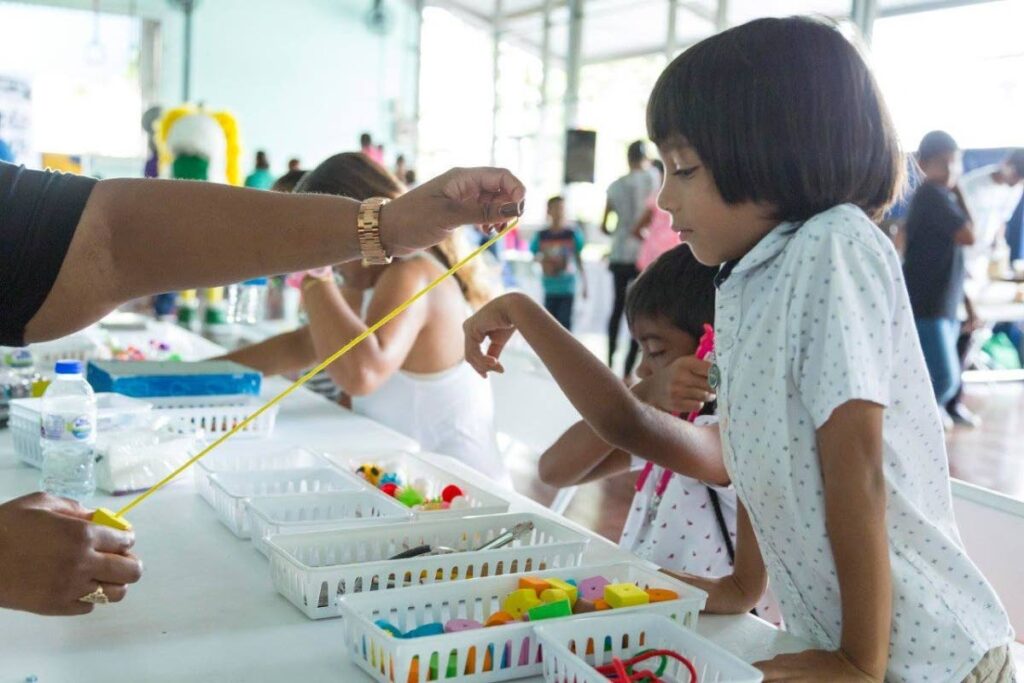Yes, children with disabilities can excel in academics

DR RADICA MAHASE
It’s the 21st century and yet there are people in TT who believe that children with disabilities (including those with special educational needs) cannot achieve academic excellence.
We live in a time when technology surrounds us, the age of the cellphone, when information is available literally at our fingertips, yet there are people who believe that you cannot and should not bother to teach children with disabilities. That they will not be able to learn and excel like "normal" children. It is both sad and frustrating when some parents speak about their children’s experiences in school.
In one case recently, a parent was told by her ten-year-old son’s teacher that he should “stop attending online classes and learn a trade because he just doesn’t have the brain to do the online work.” The teacher admitted that she doesn’t know about “dem kind of children.”
When the matter was reported to the principal, the principal supported the teacher’s comments and said, “My school isn’t for children like your son. I only want children who want to learn, children who can get top marks, and your son is not in that category. If he writes SEA he might not pass and then the school’s records will be affected, because we accustomed getting 100 per cent passes and most of our students pass for prestige schools.” Theses were the words of a principal of a government-assisted primary school.

Our archaic, ineffective, poorly managed education system has continued to perpetuate the idea that children with disabilities cannot excel academically. This perception has continued to the point where, when a child with a disability excels at any academic level (passes SEA or obtains CSEC passes), this is celebrated as the exception, as if the child was never expected to reach that level, much less excel.
The fact that, in the 21st century, there are some teachers and principals who still believe that children with disabilities cannot learn is a measure of the extent to which our education system has failed and continues to fail. For those teachers and principals who believe that, let’s set the record straight:
*Every child, disability and all, is capable of learning. You just have to be creative in how you teach them. Old-fashioned teaching methods (cramming and regurgitating) will not work for many children, especially those with learning disabilities.
*Children learn at their own pace. Our education system does not cater for individual learning styles and teachers are restricted because they have a curriculum to complete in a specific time frame. If the child cannot keep up with the pace or the curriculum this is reflective of the inadequacies of the teaching system, not of the child’s ability to learn. It is therefore unfair and inappropriate that a teacher should say that the child is incapable of learning.
*Every child is different, with individual strengths and weaknesses. It is wrong to say a child cannot learn or excel academically when they are not given sufficient opportunity to develop their strengths and when teachers focus on their weaknesses only.
With this in mind, how can teachers and principals help children to achieve academic excellence?
First, by ensuring that the learning environment, whether physical or online, is conducive to learning. That means providing a caring, friendly, comfortable learning space where students, regardless of abilities, are encouraged to learn, to do their best. It also means not judging those with disabilities and assuming that they cannot learn, much less excel.
Secondly, rather than cut down students with disabilities, empower them. Teach other students to understand and include them. No child should have to hear a teacher say, “You cannot learn.. No parents should have to hear a teacher say, “Your child cannot learn.”
It may be a difficult journey, given all the duties that teachers are expected to preform, but it is unfair to focus only on the "bright children" – surely the "bright children" might excel anyway, so why not also focus on those who need the extra attention?
Thirdly, both teachers and principals, become advocates for your students with disabilities. Teachers can speak up about what their students need to excel in the classroom. Principals can push for training and development and resources which would support their teachers in the classrooms. Principals can educate teachers who believe that children with disabilities cannot learn and guide them into becoming better teachers.
Every year, all over the world, we see children with disabilities who excel academically; your student can also be one of those. Remember, in the words of the American philosopher Sidney Hook, “Everyone who remembers his own education remembers teachers, not methods and techniques. The teacher is the heart of the educational system.”
Dr Radica Mahase is the founder/director of Support Autism T&T

Comments
"Yes, children with disabilities can excel in academics"